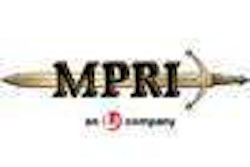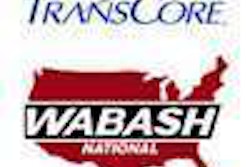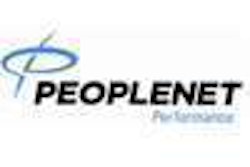The ongoing economic crisis, serious overcapacity, and the sometimes brutal competition among transportation providers drove the presentations and many private conversations at the annual ALK Transportation Technology Summit in Princeton, N.J.
For the fifth year, ALK Technologies brought together leading technology providers and senior executives in a thought leader symposium which ran from April 20th-22nd. ALK Technologies is a worldwide developer of GPS navigation, routing, mileage, and mapping solutions.
ALK Technologies founder and Princeton University professor, Dr. Alain Kornhauser challenged attendees to confront economic and competitive issues with increased efficiency and technological innovation. “The challenge is real-time management of mobile assets,” he told the gathering.
In his keynote, John White, president of U.S. Xpress, Inc., Chattanooga, Tennessee, one of the largest truckload carriers in North America, framed the current situation. “Demand is down in all sectors. The truckload industry has seen the steepest six-month drop in tonnage ever,” he said. “I don’t think we’ve seen the bottom yet.”
Dave Ward, a partner in the management consulting firm ThoughtDrivers of Pittsburgh, Pennsylvania, said that soaring profits, low interest rates, and “irrational exuberance” led some carriers to bad decisions between 2001 and 2006. “Mediocrity emerged toward the end of 2007,” he said. Ward predicts an economic turnaround within 12 to 18 months. “Prepare now for the rebound,” he said, “or at least the beginnings of one.”
With an eye to North American truckload operations, Ben Murphy, vice president TMW Optimization Software, said that technology is helping companies hold operating costs as low as possible. Applications that optimize fuel purchases on the road can save from 4 to 11 cents per gallon or approximately $1,100 per year, per truck, Murphy said. John White, president of U.S. Xpress, reinforced the ROI associated with using TMW Systems’ IDSC ExpertFuel, “It has allowed significant controls over our second largest expense, resulting in millions of dollars of cost avoidance on an annual basis.”
Ernie Betancourt, president of Innovative Computing Corporation, Brentwood, Tennessee, discussed the value of Software-as-a-Service (SaaS) particularly for small to mid-sized carriers. Rather than pay to license, install, and maintain software on their own premises, SaaS enables carriers to work over the Internet, with access to critical applications and data from virtually anywhere. Little or no investment is required at the outset, and carriers pay as they go for only as much functionality as they need.
SaaS works for small but fast-growing carriers, said Chris Stephens, chief financial officer for Titan Transfer of Shelbyville, Tennessee. Titan was founded in 2000 with 22 trucks, and started using Innovative’s SaaS offerings: IES Access and Access Plus in 2001. The company has been able to grow to 280 tractors without having to upgrade or replace its basic operational software.
Randy Boyles, vice president of tailored solutions for PeopleNet of Minneapolis, Minnesota, said technology should be adaptable by fleet operators to meet specific business needs. He described three tank truck fleets, each with a specialized mission that integrated customized applications and equipment with PeopleNet’s onboard systems. The fleets of 15, 55, and 70 units respectively were able to integrate applications and devices they had developed themselves to meet specific service demands of their customers. Open systems software and hardware systems are essential to enable this kind of customization, Boyles said.
Tom Flies, senior vice president, product management for Minneapolis-based Xata Corporation, made the case for onboard navigation focusing on driver safety and the importance of “Eyes on the Road”. On average, drivers using speech input keep their eyes on the road 200−300 percent more than drivers who use manual input. Real-time, turn-by-turn directions have been shown to improve driver safety, Flies stated, with the resulting positive impact on the bottom line.
Bernie Cassetori, vice president, fleet management for U.S. Foodservice, which uses CoPilot Truck turn-by-turn navigation through XATA, said that integrated navigation is especially valuable for new drivers. U.S. Foodservice is the fifth largest North American private fleet.
John Hazenfield, vice president and chief information officer of liquid bulk carrier DisTech, described reports that the company’s software from EBE Technologies provides for individual driver performance to scorecards for managers at different levels. “It gets the information to the grass roots,” Hazenfield said.
Thorny Embly, vice president of Central Penn Transportation, a regional truckload carrier based in Lancaster, PA, said that thin profit margins and rising costs, particularly tolls, drive a growing need for carrier pricing based on actual costs, actual miles, and actual tolls. “It’s time to get real,” Embly said.
“With diesel prices and tolls rising, fuel surcharge recovery issues, driver retention, and other cost pressures, carriers and shippers need to base rates on reality,” he said.
Brad Gregory, director of Software Alliances for SMC3, urged carriers and shippers to master the use of bid technology. Gregory outlined the differences between bid processes, truckload, and LTL for example, and cited three large shippers who had used technology to organize and manage for-hire transportation for substantial cost savings, particularly after acquisitions and mergers. Gregory cautioned that the best carrier might not always be the least costly and that even the best bid technology cannot compensate for faulty input due to bad data or poorly considered goals.
Participant Jay Sewell, president of Sewell Motor Express, a truckload motor carrier operating 150 trucks, summed up his thoughts on the annual event. “I look forward to the updates on technology. In these hard economic times it is important to stay up on products and services that will help your business become more profitable.”
For more information on ALK’s Fifth Annual Transportation Technology Summit, visit www.alk.com/techsummit2009.











